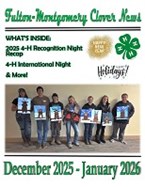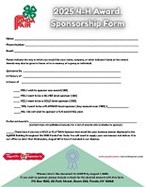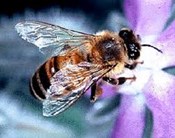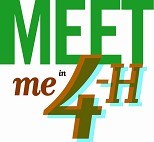What Are the Results of Honey Bee Pollination in my Community?
To determine what crops were pollinated by honey bees in her community of Shelby County, Louisville, Ky., Michelle Solinger, 15, quizzed farmers and orchardists and handed out surveys at a beekeeping workshop. The result was a list of 16 crops ranging from apples to squash to watermelons. Her essay was judged the best of the 20 state winners entered in the 2012 4-H Beekeeping Essay Contest, sponsored by the Foundation for the Preservation of Honey Bees.
Michelle wrote about the importance of honey bee population and summed up her findings: “When a honey bee pollinates a flower, it turns it into something more complex; something that is able to support life.” Her first place prize is a cash award of $750.00.
Tucker Van Brunt, 12, of Center Tuftonboro, N.H., took the second place award of $500.00 He interviewed beekeepers representing three generations to learn about the benefits of pollination and to get their views on the cause of CCD. “My opinion about the cause of Colony Collapse Disorder is that the pesticides are very slowly eliminating the bees,” he wrote.
After writing about the three beekeepers’ pollination activities, Tucker wrote, “Each of these beekeepers is inspiring others to be aware of how important the small and powerful honey bee is to our lives. It just goes to show that even though honey bees are small, they give a big impact!”
The life of “Joy,” a fictionalized honey bee was imagined by Marina Graham, 13, from Enumclaw, Wash. Her third place essay earned her $250.00. She focused on Washington apple pollination and concluded: “In my observation, bees are essential to all my meals, and what would I do without honey on my cereal in the morning? Honey bees are irreplaceable for pollination of the heavily-relied-upon Washington state apple crop. Next time you take a bite of a juicy apple, remember it was likely pollinated by one of creation’s most fascinating creatures.”
Each state winner, including the national winners, will receive a copy of a book about beekeeping.
The essay topic for 2013 is “Reducing the Usage of Bee-Killing Pesticides in my Community.” The 4-H’ers are encouraged to learn about bee-killing pesticides being used in their communities – by homeowners, businesses, or farmers. Then, they should investigate how the impact of those pesticides on honey bees can be lessened. Students interested in writing should contact their local 4-H offices for contest details. The state selection must be done through the 4-H system.
The complete rules are available on the Foundation’s website, honeybeepreservation.org. The full text of the winning essays is posted there as well.





